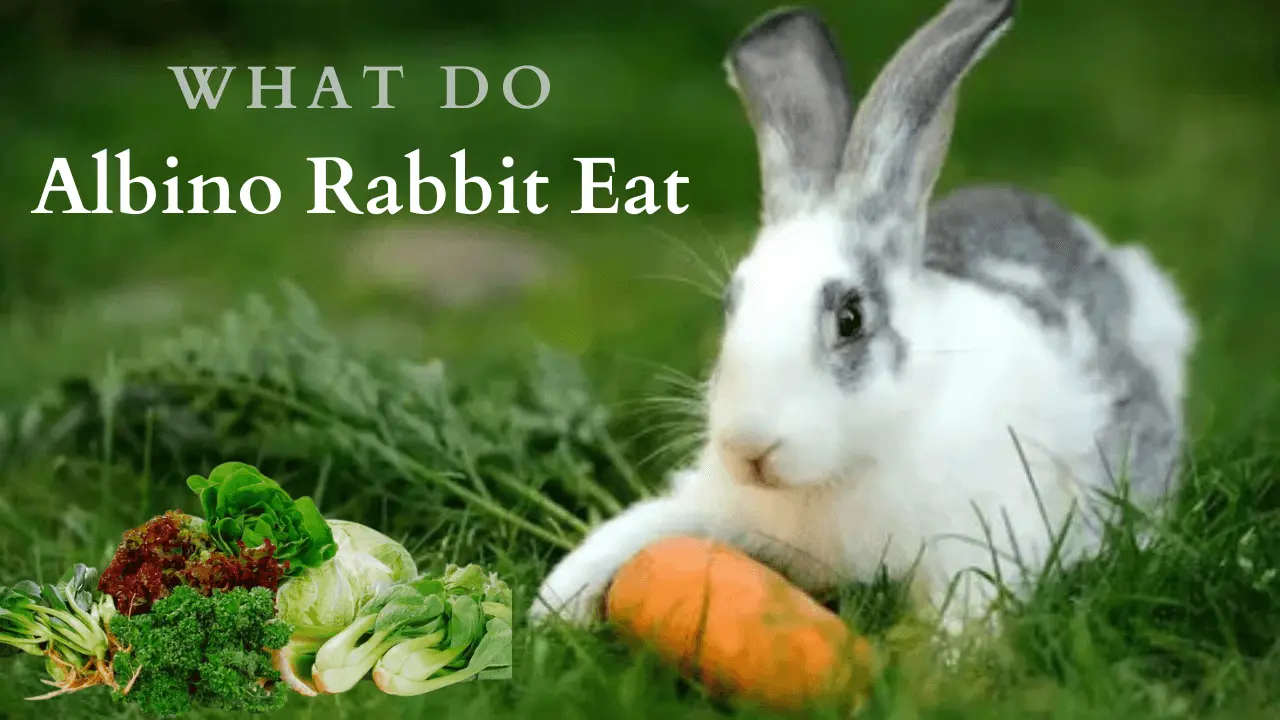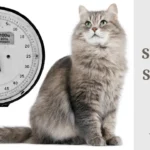Albino rabbits are fascinating animals known for their impressive white fur and pink or red eyes. These unique rabbits have special dietary needs that are important to their health and happiness. Understanding the dietary habits of albino rabbits eat is vital for owners who want to provide the best care for their furry friends.
A balanced diet for albino rabbits consists of high quality hay, fresh vegetables and appropriate pellets. Hay (such as timothy grass or orchard grass) should make up the majority of your rabbit’s diet as the fiber provided by hay is essential for digestion and dental health.
Fresh vegetables including leafy greens such as romaine lettuce and kale are rich in important nutrients and come in a wide variety. In addition, feeding a certain amount of rabbit-specific pellets ensures that your rabbit gets the vitamins and minerals it needs.
Knowing which foods to avoid is equally important. Sugary fruits, processed foods and harmful substances can harm albino rabbits. Providing your albino rabbit with regular access to fresh water and monitoring their food intake can help keep them healthy and happy.
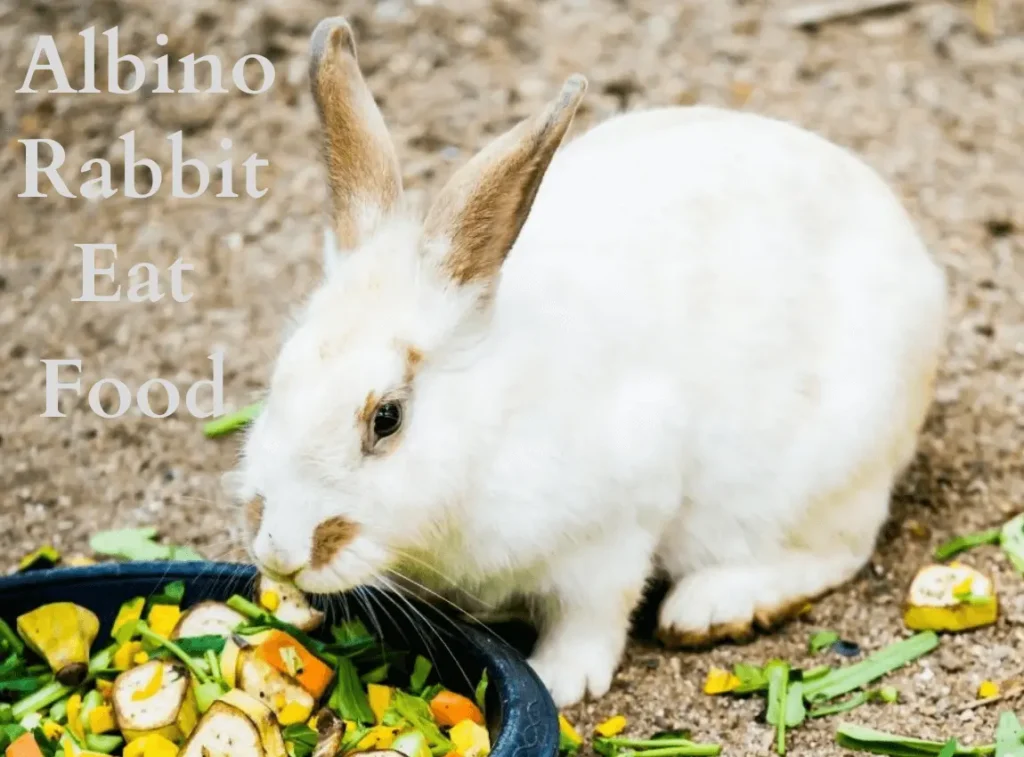
In this guide, you’ll learn about the best foods for albino rabbits, feeding tips for different life stages, and what to look for. Whether you’re just starting out with rabbits or you’re a pet owner looking to optimize your pet’s diet understanding your albino rabbit’s eating habits is the first step in ensuring a long and healthy life.
- Understanding Albino Rabbits Eat Needs:
- List of Foods for Albino Rabbits:
- Albino Rabbit Food by Age:
- Tips for Choosing the Best Food for Albino Rabbits:
- Special Considerations for Albino Rabbits:
- Special Considerations by Age:
- Observing and Adjusting Albino Rabbit Diet Plan:
- Conclusion:
- Frequently Asked Question:
Understanding Albino Rabbits Eat Needs:
Albino rabbits like all rabbits are herbivores. To support their digestive system, dental health and overall well-being their diet needs to be high in fiber, low in fat and low in sugar. Here are the key components of a healthy diet for albino rabbits:
The Cornerstone of a Rabbit’s Diet:
Hay is the most important part of a rabbit’s diet and should make up about 80-85% of the daily ration. It provides the necessary fiber to aid digestion and helps prevent dental problems as teeth become healthier.
- Types of hay: The best types of hay for albino rabbits are timothy hay, orchard hay and meadow hay. These hay types are high in fibre and low in calories and calcium making them ideal for your rabbit’s health.
- Quality of straw: Make sure the hay is fresh, dry and free from mould and dust. Good quality hay should have a pleasant, sweet smell and a greenish color.
- Quantity: Rabbits must have constant access to pasture throughout the day.
Adding Nutrients and Variety:
Fresh vegetables are important to add nutrients and variety to the albino chicken’s diet. They should be added gradually and in moderation to avoid digestive problems.
- Green leafy vegetables: Such as romaine lettuce, kale, spinach and coriander are excellent options. They are rich in vitamins and minerals and help keep your rabbit hydrated.
- Other vegetables: Vegetables like bell peppers, broccoli, carrots (in moderation) and zucchini. Make sure to wash them thoroughly to remove pesticides and contaminants.
- Portion size: Provide approximately one cup of fresh vegetables per 2 kg of body weight per day. Vary the types of vegetables to ensure nutritional diversity.
Nutritional Supplement:
While hay and fresh vegetables should be the main part of an albino rabbit’s diet a good quality rabbit fresh food is also an important addition. Rabbit feed provides essential vitamins and minerals that cannot be fully satisfied by hay and vegetables.
- Choosing pellets: Choose muesli with high fiber content (at least 18%) and a low content of protein (about 12-14%) and calcium. Avoid products with added sugar, seeds or artificial colors.
- Serving size: Feed adult albino rabbits approximately 1/4 cup of pellets per 5 kg of body weight daily. Adjust the dose according to the rabbit’s individual needs and weight.
Vital for Hydration:
Hydration is crucial to your rabbit’s health. Always provide fresh, clean water and change it every day.
- Water source: Use a water bottle or heavy ceramic bowl that cannot be easily knocked over. Make sure the water source is cleaned regularly to prevent the spread of bacteria.
- Monitor your water intake: Keep track of how much water your rabbit is consuming. Changes in your rabbit’s water habits may indicate health problems that may require veterinary care.
List of Foods for Albino Rabbits:
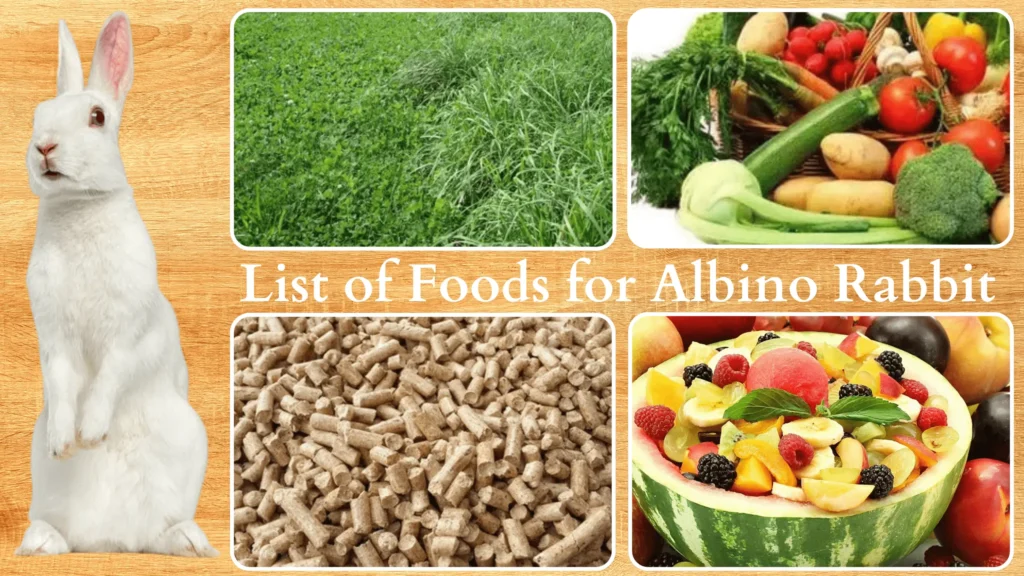
To ensure your albino rabbit receives a healthy and balanced diet. Here is a detailed list of suitable foods divided into hay, fresh vegetables, pellets and other treats.
Hay:
Hay is the foundation of the rabbit’s diet providing essential fiber for digestion and oral health. Make sure it is fresh, dry and free of mold.
- Timothy Hay
- Orchard Grass
- Meadow Hay
- Oat Hay
- Botanical Hay
Fresh Vegetables:
Fresh vegetables add variety and important nutrients to your rabbit’s diet. Introduce new vegetables gradually and take care of any digestive problems.
| Leafy Greens | Other Vegetables |
| Romaine Lettuce Kale (in moderation due to its high calcium level) Spinach (in moderation due to oxalates) Swiss Chard Cilantro Parsley Bok Choy Dandelion Greens Mustard Greens Endive Arugula Escarole | Bell Peppers (any color) Broccoli (mostly leaves and stems) Carrot Tops (carrots in moderation) Celery (cut into small pieces to avoid choking) Zucchini Cucumber Radish Tops Basil Mint Thyme Fennel Watercress |
Pellets:
Pelleted feed should be used to complement the diet and provide essential vitamins and minerals that may not be available in hay and legumes alone.
- High-Fiber Rabbit Pellets (at least 18% fiber)
- Low-Protein Rabbit Pellets (around 12-14% protein)
Fresh Fruits (Treats):
Fruit is high in sugar and should be fed sparingly a small piece once or twice a week is sufficient.
- Apple (remove seeds)
- Blueberries
- Strawberries
- Raspberries
- Blackberries
- Pineapple (remove skin)
- Papaya
- Pear (remove seeds)
- Peach (remove pit)
- Plum (remove pit)
- Melon (cantaloupe, honeydew)
- Watermelon
Fresh Water:
Fresh and clean water should always be available. Use a water bottle or heavy ceramic bowl to ensure your rabbit stays hydrated.
Albino Rabbit Food by Age:
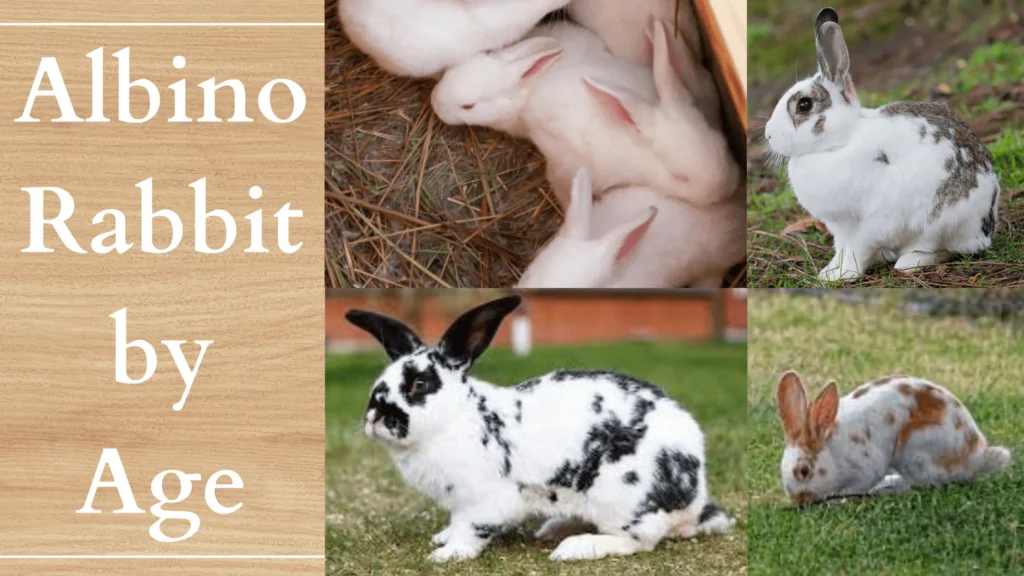
The nutritional needs of albino rabbits depend on their age as each life stage requires a specific diet to support growth, maintenance and overall health. The following is a detailed guide to the nutritional needs of albino rabbits at different ages:
Baby Albino Rabbits (Kits to 8 Weeks Old):
Baby rabbits also known as kits have unique dietary needs to support rapid growth and development.
- Mother’s Milk: in the first 3-4 weeks kits rely solely on their mother’s milk for nutrition.
- Introduction to Solid Food: At around 3 weeks they begin nibbling on solid food. Provide high-quality alfalfa hay and pellets.
- Alfalfa Hay: Rich in calcium and protein essential for growth.
- Pellets: Choose pellets formulated for young rabbits (alfalfa-based).
- Fresh Water: Ensure kits have access to clean and fresh water at all times.
Young Albino Rabbits (8 Weeks to 7 Months):
Young rabbits continue to grow rapidly and need a diet that supports this growth.
- Hay: Continue offering alfalfa hay until 6 months old then gradually transition to Timothy hay or other grass hays.
- Pellets: Provide alfalfa-based pellets for young rabbits. Gradually reduce the quantity as they approach adulthood.
- Fresh Vegetables: Introduce fresh vegetables slowly starting with small amounts to avoid digestive issues.
- Leafy Greens: Romaine lettuce, cilantro, parsley.
- Other Vegetables: Carrot tops, bell peppers.
- Fresh Water: Always have fresh water available.
Adult Albino Rabbits (7 Months to 5 Years):
Adult rabbits require a maintenance diet that supports their health and prevents obesity.
- Hay: The primary component of their diet should be high-quality grass hay like Timothy, orchard, or meadow hay.
- Pellets: Switch to high-fiber low-protein pellets (Timothy-based). Feed approximately 1/4 cup per 5 pounds of body weight daily.
- Fresh Vegetables: Increase the variety and quantity of fresh vegetables.
- Leafy Greens: Kale (in moderation), dandelion greens, spinach (in moderation).
- Other Vegetables: Broccoli, zucchini, cucumber.
- Fresh Fruits: Offer fruits sparingly as treats.
- Suitable Fruits: Apple slices (no seeds), blueberries, strawberries.
- Fresh Water: Always provide a constant supply of clean and fresh water.
Senior Albino Rabbits (5 Years and Older):
Senior rabbits may have changing dietary needs due to slower metabolism and potential health issues.
- Hay: Continue providing unlimited high-quality grass hay.
- Pellets: Maintain the same pellet quantity but consider pellets designed for senior rabbits if they are available.
- Fresh Vegetables: Continue offering a variety of fresh vegetables but monitor their intake to ensure they maintain a healthy weight.
- Fresh Fruits: Offer fruits sparingly as before to prevent weight gain.
- Supplements: Consult your veterinarian about supplements for joint health or other age-related issues.
- Fresh Water: Fresh water should always be available.
Tips for Choosing the Best Food for Albino Rabbits:
To provide your albino rabbit with the best nutrition you must know its specific nutritional needs and provide it with a balanced, high-quality diet. Here are some tips to help you choose the best fresh food for your albino rabbit:
Prioritize High-Quality Hay:
Hay should be the cornerstone of your albino rabbit’s diet making up about 80-85% of their daily intake.
- Types of Hay: Choose hay rich in fibre such as timothy, fruit grass or meadow hay. Alfalfa hay is suitable for young rabbits but should be limited in adult rabbits because of its high calcium content.
- Quality: Choose fresh green hay that is free from mold, dust, and pesticides. The smell should be both pleasant and sweet.
- Availability: Ensure your rabbit has unlimited access to hay at all times.
Select the Right Pellets:
Pellets provide essential vitamins and minerals that may not be fully covered by hay and vegetables alone.
- Ingredients: Look for pellets that are high in fiber (at least 18%) and low in protein (around 12-14%). Avoid pellets with added sugars, seeds, or artificial colors.
- Quantity: Feed adult albino rabbits about 1/4 cup of pellets per 5 pounds of body weight daily. Adjust the portion based on your rabbit’s individual needs.
Offer a Variety of Fresh Vegetables:
Fresh vegetables are essential for providing additional nutrients and variety to your rabbit’s diet.
- Leafy Greens: Include romaine lettuce, kale (in moderation), spinach (in moderation), cilantro, and parsley.
- Other Vegetables: Bell peppers, broccoli (mostly leaves and stems), carrot tops, zucchini, and cucumber are good choices.
- Introduction: Introduce new vegetables gradually to avoid digestive issues. Monitor your rabbit for any signs of intolerance.
Limit Fruits and Treats:
Fruits and treats should be given sparingly due to their high sugar content.
- Suitable Fruits: Offer small amounts of apple slices (without seeds), blueberries, strawberries, and other berries.
- Frequency: Provide fruits only once or twice a week as a special treat.
Ensure Fresh Water Supply:
Hydration is crucial for your rabbit’s health.
- Water Source: Use a water bottle or a heavy ceramic bowl that cannot be easily tipped over.
- Cleanliness: Change the water daily and clean the container regularly to prevent bacterial growth.
Avoid Harmful Foods:
Certain foods can be harmful or toxic to rabbits and should be strictly avoided.
- High-Sugar Foods: Bananas, grapes (in large quantities)
- Processed Foods: Bread, pasta, crackers, chips
- Toxic Foods: Chocolate, caffeine, avocado, onions, garlic, chives, rhubarb, potatoes, iceberg lettuce (low nutritional value), sugary cereals, and processed snacks.
Monitor Weight and Health:
Regularly check your rabbit’s weight and overall health to ensure they are thriving on their diet.
- Weight Management: As the rabbit gains weight adjust the portion sizes of pellets and vegetables. Feed enough hay to satisfy the grazing instinct without adding additional calories.
- Veterinary Check-Ups: Schedule annual check-ups with a veterinarian experienced with rabbits. They can provide guidance on diet, dental health, and overall care.
Special Considerations for Albino Rabbits:
Albino rabbits may have some specific needs due to their unique physiology.
- Sensitivity to Light: Provide a shaded and cool environment for your albino rabbit especially during feeding times. Avoid placing their food and water bowls in direct sunlight.
- Dental Health: Ensure your rabbit has constant access to hay which helps wear down their teeth naturally.
Special Considerations for Albino Rabbits:
Albino rabbits’ dietary needs are similar to other rabbits. There are some special considerations to keep in mind due to their unique physiology.
Sensitivity to light:
Albino rabbits have a heightened sensitivity to light due to the lack of pigmentation in their eyes. This can impact their feeding habits and overall well-being.
- Feeding Environment: Provide a shaded and cool environment for your albino rabbit especially during feeding times. Avoid placing their food and water bowls in direct sunlight.
- Monitoring Behavior: Observe your rabbit’s behavior and adjust their environment as needed to ensure they are comfortable and not stressed by excessive light.
Dental health:
Albino rabbits like all rabbits have continuously growing teeth. Proper dental care is essential to prevent dental issues that can impact their ability to eat and overall health.
- Hay for Dental Health: Ensure your rabbit has constant access to hay which helps wear down their teeth naturally.
- Regular Checks: Regularly check your rabbit’s teeth for any signs of overgrowth or abnormalities. Consult a veterinarian if you notice any issues.
Foods to avoid:
Certain foods can be harmful to albino rabbits and should be avoided to prevent health issues.
- High-Sugar Foods: Avoid feeding rabbits sugary fruits and vegetables like bananas, grapes, and apples in large quantities. These can lead to obesity and dental problems.
- Processed Foods: Never feed your rabbit processed foods including bread, pasta, crackers, or chips. These foods are not suitable for a rabbit’s digestive system.
- Toxic Foods: Some foods are toxic to rabbits and should be strictly avoided. These include chocolate, caffeine, avocado, and foods from the onion family (garlic, onions, chives).
Special Considerations by Age:
Baby and Young Rabbits:
- Digestive sensitivity: Introduce new foods gradually to avoid digestive upset.
- Growth monitoring: Monitor weight gain and growth to ensure they are developing properly.
Adult Rabbits:
- Weight management: Avoid overfeeding pellets and treats to prevent obesity.
- Dental health: Ensure they have plenty of hay to chew on for dental health.
Senior Rabbits:
- Regular check-ups: Schedule more frequent veterinary check-ups to monitor for age-related health issues.
- Adaptation: Be ready to adjust their diet based on their changing health and nutritional needs.
Observing and Adjusting Albino Rabbit Diet Plan:
Each rabbit is unique and has different nutritional requirements depending on its age, health, and activity level. It is important to observe the eating habits of your albino rabbit and adjust its diet accordingly.
Weight Management:
Monitor your rabbit’s health and keep it at a healthy weight. Overweight rabbits are at risk of a number of health problems including arthritis and heart disease.
- Portion control: if your rabbit is overweight adjust the amount of pellets and vegetables. Try to give him plenty of hay to satisfy his grazing instincts without adding extra calories.
- Exercise: give your rabbit the opportunity to exercise and stay active. A healthy active lifestyle complements a balanced diet.
Regular Veterinary Check-Ups:
Regular veterinary check-ups are crucial for monitoring your rabbit’s health and catching any potential issues early.
- Health monitoring: Schedule annual check-ups with a veterinarian experienced with rabbits. They can provide guidance on diet, dental health, and overall care.
- Nutritional advice: Consult your veterinarian for personalized dietary advice based on your rabbit’s specific needs and any health conditions they may have.
Also Read: https://thepetlive.com/color-of-an-albino-rabbit/
Conclusion:
The staple diet for albino rabbits is high-quality hay such as Timothy hay and orchard grass which helps maintain a healthy digestive system and dental growth. Adding a variety of fresh vegetables including leafy greens like lettuce and kale will provide your rabbit with essential nutrients and a varied diet.
A moderate amount of high-fiber, low-protein pelleted food is also important to provide vitamins and minerals. Fresh fruits such as apples and strawberries are high in sugar and should be given sparingly. Always provide your albino rabbit with clean and fresh water to keep them hydrated. Avoid giving your albino rabbit large amounts of unhealthy foods such as chocolate, processed sweets, and sugary fruits.
Monitor your rabbit’s weight and health regularly and consult your veterinarian for advice on a customized diet. Following these recommendations will help your albino rabbit enjoy a healthy, balanced diet and promote overall health and longevity. Prioritize your rabbit’s special needs such as sensitivity to light and dental health, to create a comfortable and stimulating environment for this unique pet rabbit.
Frequently Asked Question:
Can albino rabbits eat grapes?
Yes, albino rabbits can eat grapes in moderation. Grapes contain a lot of sugar so they should be given in small amounts as a treat. Too much sugar can cause obesity and digestive problems in rabbits. Always wash grapes thoroughly and remove the seeds before giving to your rabbit.
What is my rabbit’s favorite food?
A rabbit’s favorite food is usually fresh, high-quality hay such as Timothy hay. Hay is essential for rabbits for digestive and dental health. They also love a variety of fresh vegetables such as romaine lettuce, cilantro and carrots.
What foods should rabbits not eat?
Rabbits should avoid foods such as chocolate, caffeine, avocados, onions, garlic, leeks, rhubarb, potatoes, lettuce and snacks that are processed in a sweet way. These foods can be toxic or harmful to the rabbit’s digestive system.
Can rabbits eat bread?
No, rabbits should not eat bread. Bread is high in carbohydrates and lacks fiber, which rabbits need for their digestive health. Feeding bread can lead to obesity and digestive problems.
Can a rabbit eat rice?
Rabbits should not eat rice. Both cooked and uncooked rice is not suitable for a rabbit’s digestive system and can cause digestive problems. Choose hay, fresh vegetables and pellets accordingly.
What are 3 things rabbits eat?
Three essential foods that rabbits eat are:
- High-quality hay (e.g., Timothy hay)
- Fresh vegetables (e.g., romaine lettuce, kale)
- High-fiber pellets
What foods make rabbits happy?
A rabbit’s favorite foods are an unlimited supply of good quality hay, a variety of fresh vegetables, and occasional small quantities of apple or berries. These foods provide essential nutrients and a wide variety of choices that rabbits love.
